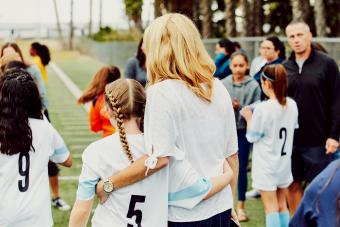
Parenting a baby is full of joys and challenges, and many parents can attest that it can be especially hard when your little one is sick. Along with giving extra snuggles, it's important to ensure your baby stays hydrated when they're feeling under the weather. Because your baby is so little, it's much easier for them to become hydrated. This is especially true if your baby has a fever, diarrhea, or is vomiting.
Causes of Dehydration in Babies
Dehydration occurs when your baby does not have enough fluid in their body. It's normal for babies to lose fluid every day, but it is essential that they replace what is lost, especially when sick. Babies and small children are particularly vulnerable to dehydration, so if your little one is feeling unwell, it is essential to keep a close eye on their fluid intake to prevent dehydration. Understanding the common causes of dehydration as well as warning signs can help you catch it early to ensure your baby stays hydrated.
Causes of dehydration in babies include:
- Diarrhea
- Fever
- Insufficient intake of breastmilk or formula
- Sore throat
- Teething
- Vomiting
Signs of Dehydration in Infants
Babies and young children are particularly susceptible to dehydration, particularly when they've been vomiting or have diarrhea because both of those conditions involve fluid loss. Your baby can't tell you how they're feeling, so it's important to watch for signs of dehydration. Common signs of dehydration in infants include:
- Crankiness and irritability
- Decrease in wet diapers and/or darker urine
- Dry or sticky lips and mouth
- Few or no tears when crying
- Lethargy/sleepiness
- Soft spot (fontanelle) on the top of their head looks sunken in
- Sunken eyes
- Wrinkly, less elastic skin
How to Keep Your Baby Hydrated When Sick
Your baby may not want to nurse or take bottles when they're not feeling well. Your toddler may refuse to drink fluids when sick. But keeping your little one hydrated is essential for a quicker recovery and for their comfort and health. Try some of these strategies to help them stay hydrated.
Offer Fluids
Continue to offer your baby formula or breastmilk. If they are vomiting, you may want to feed them smaller amounts more frequently to help them stay hydrated without upsetting their stomach. On average, babies need about 2.5 ounces of fluid for every pound of body weight. If they're losing a lot of fluids from vomiting and diarrhea, they may need up to 3 ounces per pound to stay hydrated.
Your baby's pediatrician may recommend supplementing breastmilk and formula with an oral hydration solution such as Pedialyte or Enfalyte. This won't stop the vomiting or diarrhea, but it will help replace fluids and electrolytes to treat and prevent dehydration.
Offer Small, Frequent Sips
If your baby is struggling to drink as much formula or breastmilk than usual, offer them small, frequent sips every 10 minutes. If they're turning away from the breast or bottle, you may want to try giving them small sips from a spoon, syringe or an open cup.
Babies 6 months and older can be offered small sips of water throughout the day. This can help them stay hydrated, but it won't give them the nutrients they need, so it's important to continue offering breastmilk or formula even if they're drinking water. Don't offer sports drinks, sodas, or undiluted juice to babies of any age. These drinks are do not have the right balance of electrolytes and can worsen symptoms of their illness.
When to Call the Doctor for Infant Dehydration
Most cases of mild dehydration in infants can be treated at home, but moderate to severe dehydration requires medical attention. If you notice signs of dehydration in your baby, call a healthcare provider if your child:
- Has not had anything to drink in a few hours
- Is under 12 months old and is only drinking oral rehydration solutions and refusing breastmilk or formula
- Has diarrhea for 8 hours or more
- Is under 3 months old and has a fever OR is over 3 months old and has a temperature of 104 degrees F or higher
- Has 2 or fewer wet diapers in 24 hours
- Is excessively sleepy
- Has sunken eyes and/or a sunken fontanelle (soft spot)
- Has wrinkly skin
Seek immediate medical attention for your baby if:
- They are difficult drowsy, excessively sleepy, and difficult to wake
- They have green, red, or brown vomit
- They refuse all fluids, including oral rehydration solutions
- They are not urinating
- They have cold hands and feet
If your baby is severely dehydrated or too sick to drink fluids, their healthcare provider may give intravenous (IV) fluids through a vein or through a nasogastric tube - a thin, plastic tube that goes down their nose, throat, and into the stomach. While these methods may seem drastic, your healthcare provider can explain the procedure to you and ensure that both you and your baby stay comfortable. Remember that the medical team is there to help.
As a parent, you do your best to keep your baby healthy and happy. Having a sick baby is stressful, but the good news is, most illnesses that cause diarrhea and vomiting pass quickly and your baby should be feeling better soon. If you have any concerns or your baby is showing signs of dehydration, call their pediatrician.







